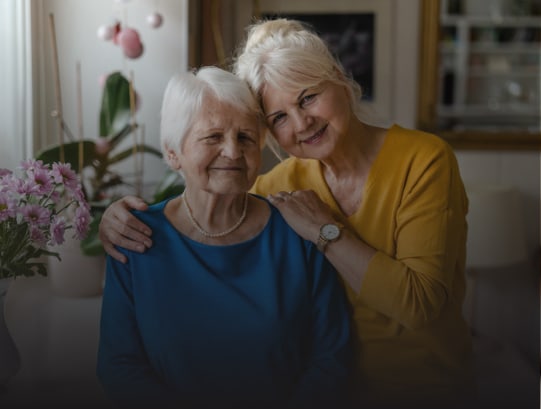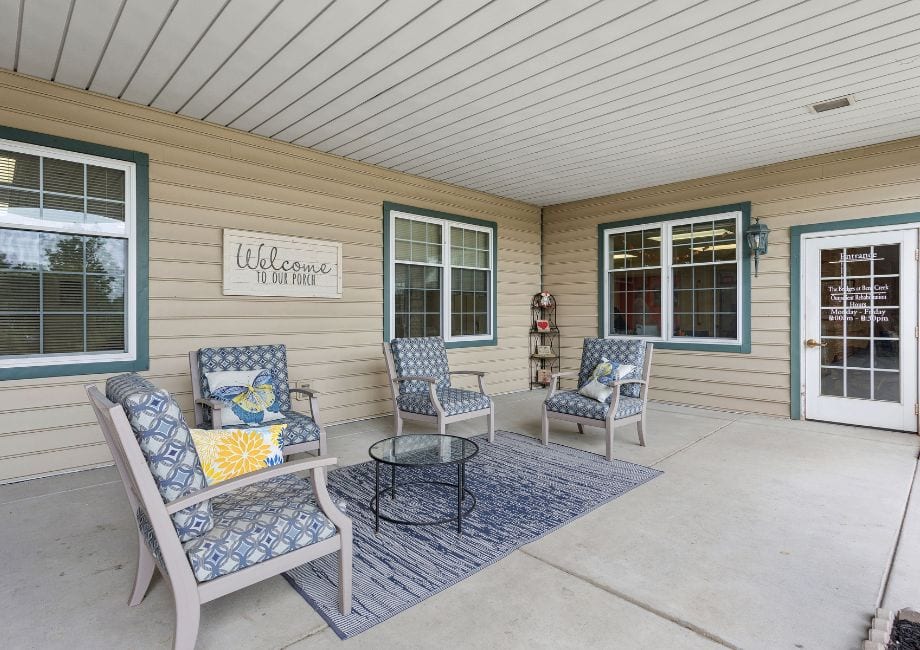Personal care is a crucial way to aid seniors maintain a high quality of life, while providing help with daily activities based on each individual’s specific needs. With personal care, your loved ones can live with dignity, comfort, and independence as you age.
With the right balance, personal care in senior living can provide support when needed and create a sense of well-being and peace of mind for your loved one and family members.
The Importance of Personal Care for Seniors
Personal care is an essential tool for someone’s well-being as they age. Besides providing assistance with daily activities, personal care helps balance support and independence, and fosters connection and belonging.
It can also be a great benefit for caregivers. While caregiving can be rewarding, it can also be challenging. Family caregivers can seek support, take breaks, look for respite care, and consider personal care for loved ones on a longer-term basis.
Here are some benefits of personal care:
- Promotes physical health: Regular assistance with activities of daily living can help maintain physical and overall health.
- Contributes to mental and emotional well-being: Engaging in daily routines and social interactions can alleviate loneliness and depression. Personal care providers often offer companionship, which can significantly improve seniors’ mood and outlook.
- Supports independence: By receiving help with daily tasks, your loved one can focus on doing what they enjoy. This sense of autonomy is invaluable for their self-esteem and overall happiness.
Personal Care Services

Personal care services are tailored to meet each individual’s unique needs. Here are some of the most common personal care services:
- Grooming and hygiene: Assistance with bathing, dressing, and grooming.
- Meal assistance: Preparing nutritious meals and eating can be challenging as you age. Personal care can help provide nutritious meals and feeding.
- Mobility and exercise: Maintaining mobility is crucial for seniors’ physical health. Personal care services often include assistance with walking, getting around and even attending fitness centers.
- Therapy: On-site therapy, including physical, occupational, and speech-language pathology to improve mobility, balance, and strength, support daily life with ease and autonomy, and maintain vital communication and connection.
- Medication management: Personal care can also encompass medication management with an in-house pharmacy.
- Wellness services: These can include on-site healthcare providers, coordination with personal healthcare providers, health records, and on-site physical therapy.
Personal Care Living Amenities
Loved ones in personal care live in suites and apartments featuring 1-bath and 1-bed layouts with an open, contemporary design and modern appliances.
Personal care amenities include:
- Modern kitchenettes
- Individual thermostat controls
- No property taxes
- Utilities, including electricity and water
- Internet
- Cable
- Housekeeping & linen services
When to Choose Personal Care
By understanding the importance of personal care, exploring various services, and choosing the right care plan, you can make a significant difference in your loved one’s life. Selecting a personal care lifestyle option for a loved one can depend on several factors. Here are the steps you should follow before selecting a Personal Care provider:
- Assess needs: Evaluate a loved one’s daily activities, health conditions, and personal preferences. Consider physical, emotional, and social needs.
- Research options: Explore different personal care services. Look for recommendations from healthcare professionals, friends, and online reviews. Make sure that the community is licensed and has a good reputation.
- Ask questions: When touring a personal care community, ask about staff qualifications and services offered. Inquire about their approach to care and how they handle emergencies.
- Consider costs: Check financial resources for personal care costs, such as if insurance or government programs can assist with the expenses.
The Role of Family in Personal Care
Family members play a vital role in determining when it’s time for personal care for their loved ones. Their involvement can make a difference in the quality of care and emotional well-being of older adults.
Adult children and family members can offer emotional support when transitioning to personal and companionship when visiting, which are crucial for older adults’ mental health. Their presence can provide comfort and a sense of security.
Adult children and family members can advocate for their loved one’s needs and preferences by communicating with personal care communities.
Technology in Personal Care
Advancements in technology are transforming personal care, making it more efficient and accessible. Here are some technology solutions that improve the quality of care for older adults in personal care:
- Virtual visits
- Medical alerts such as fall detection
- Remote access to health and wellness services
- Electronic medical and health records
By integrating these technologies into personal care, senior communities can enhance older adult’s safety, health, and independence.
Support & Independence in Personal Care
Personal care is more than just a set of services—it’s about enhancing the quality of life of your loved ones within a supportive environment. Whether through grooming, meal assistance, or companionship, personal care makes sure that seniors live rich and fulfilling lives.
If you’re considering personal care for a loved one, take the time to explore your options and consult with professionals. Book a tour with The Bridges at Bent Creek to learn more about our community and see our amenities in person.










